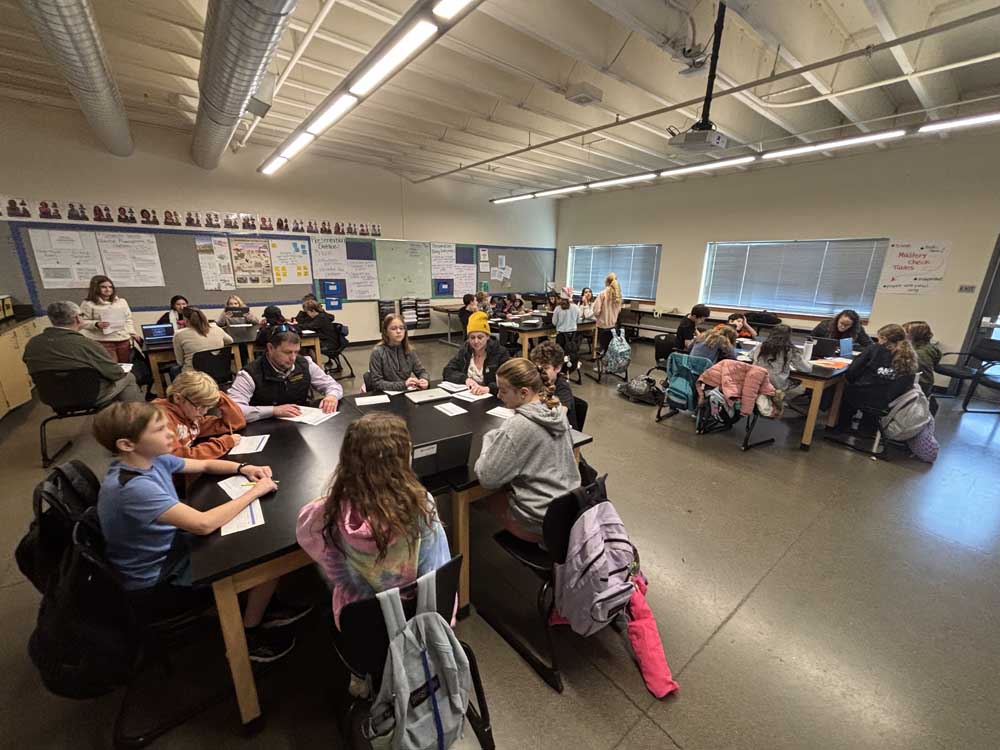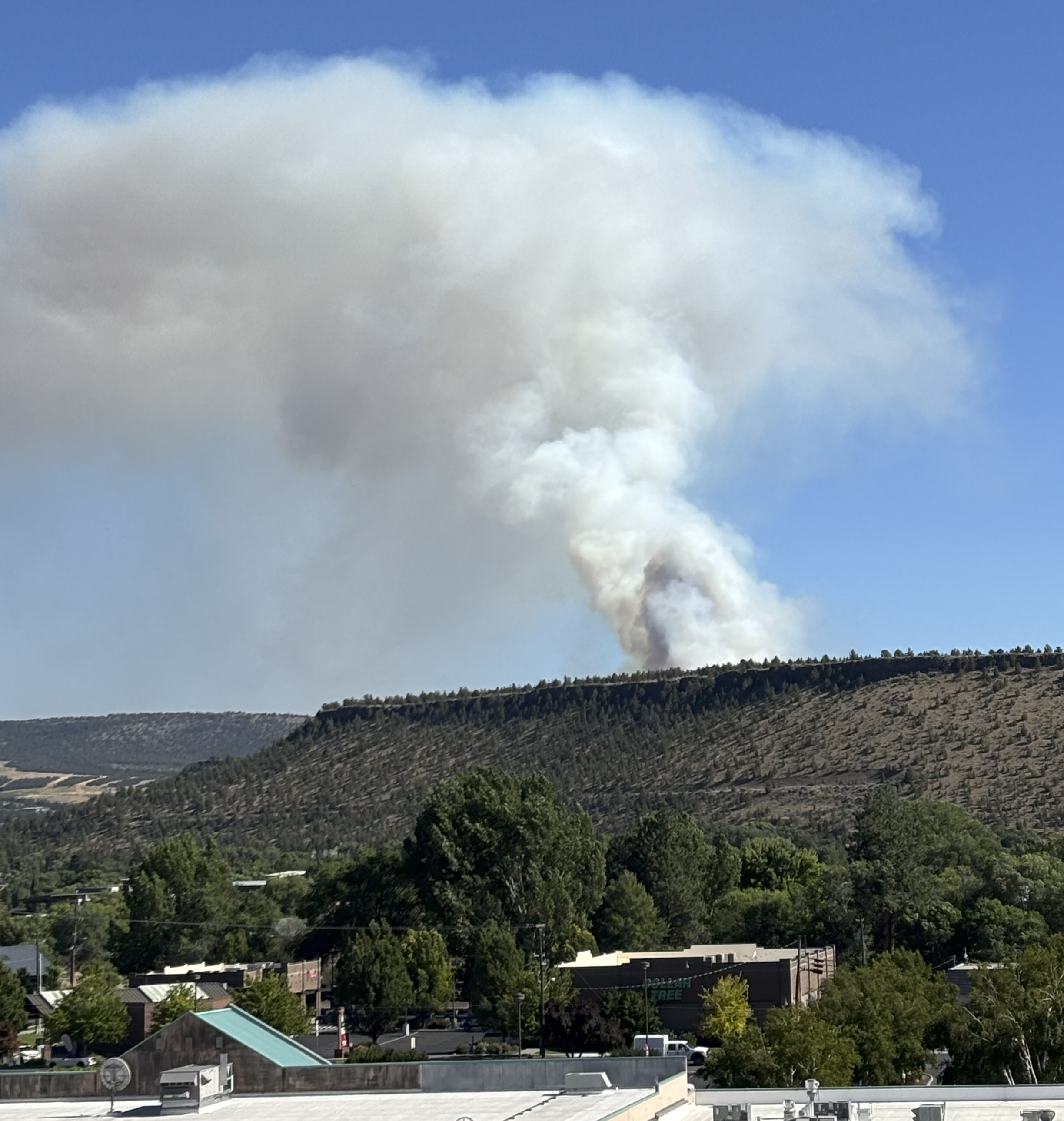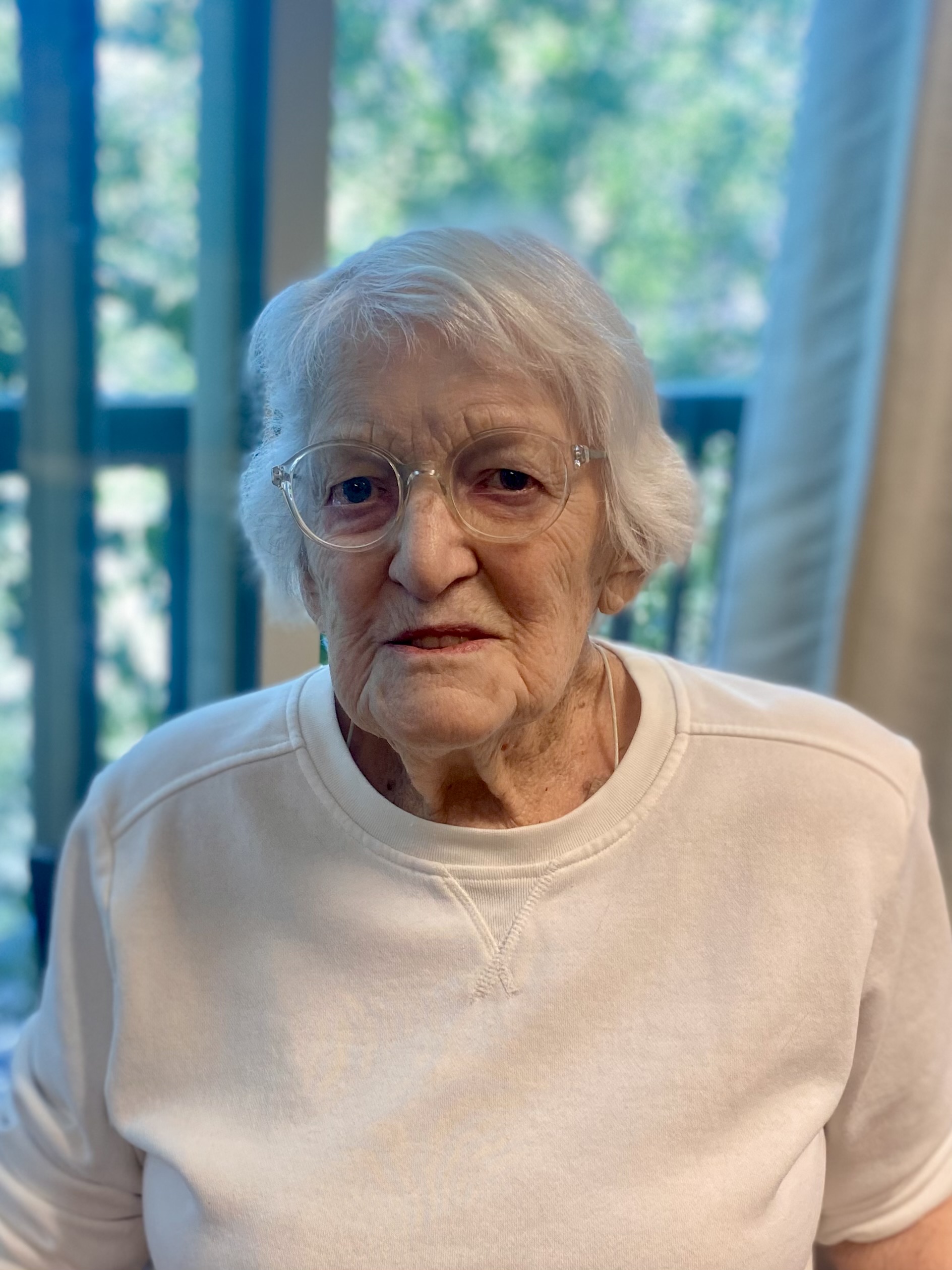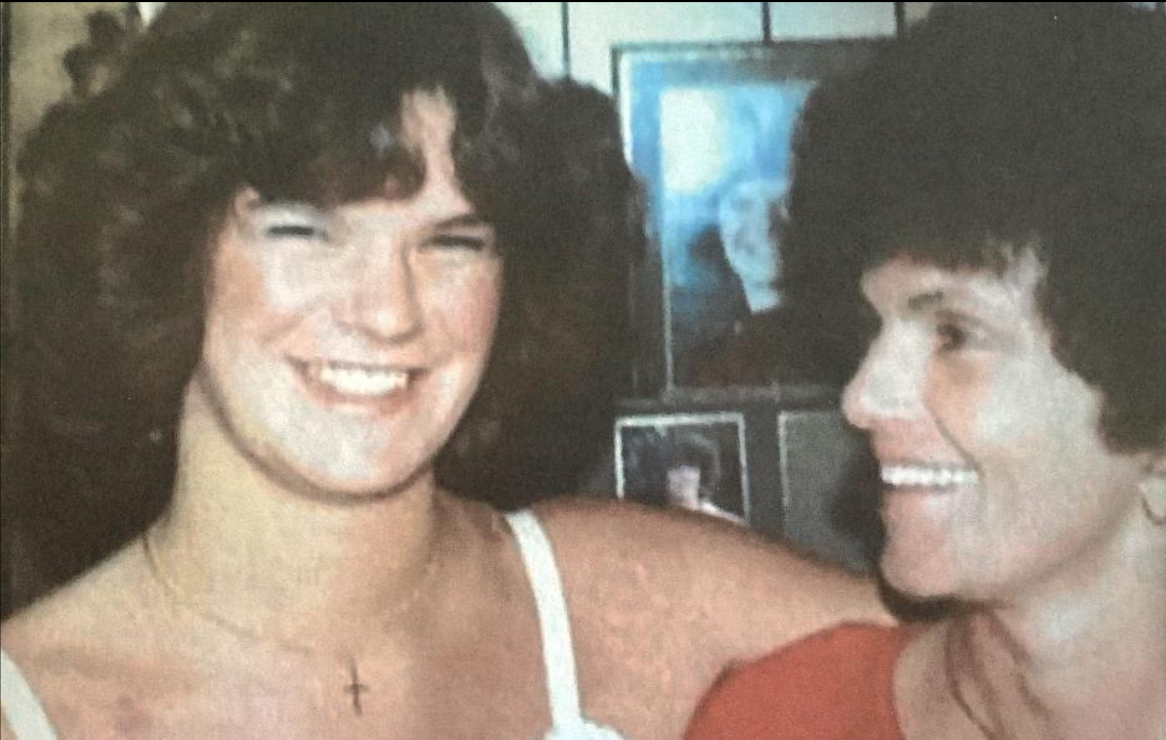RPA students create social media campaigns to promote water conservation
Published 12:52 pm Thursday, December 19, 2024

- Sixth-grade students from Redmond Proficiency Academy work on water conservation social media campaigns for the city of Redmond.
Sixth-grade students from Redmond Proficiency Academy presented their water conservation social media campaign to representatives from the Redmond representatives on Dec. 17, the culmination of a comprehensive semester-long study of Central Oregon’s water systems.
Trending
The journey began in September when science teacher Andrea Adams launched a project-based learning unit, connecting students with local water experts and facilities.
Students first visited Redmond’s largest water tank to understand municipal water storage, followed by field studies at the Crooked River Canyon where they observed springs and geological formations that shape local water systems. Their hands-on education continued with tours of Redmond’s wastewater treatment facility and meetings with representatives from the city and Central Oregon Geoscience Society.
“It was great having Ms. Adams’ 6th-grade class visit,” said Corissa Holmes, city of Redmond Environmental Programs Supervisor. “Even with the gross smells of the treatment process, several presentations explained how this tour was their favorite.”
Trending
“By immersing students in every aspect of Redmond’s water system, from natural springs to modern infrastructure, they’ve developed a deep understanding of water’s journey through our community,” said Adams.
Working with RPA communications coordinator, Laurel Eberhart, students translated their scientific insights into social media content.
“I was very impressed with the research done and presentation skills on display,” said Eberhart. “Students demonstrated a remarkable ability to translate complex environmental concepts into clear, engaging messages for our community.”
Maria Ramirez, city of Redmond special projects and natural resource program, said “the students’ different ideas to encourage others to post and participate in the conservation campaign challenge were great.”
Their final presentations combined practical conservation tips, like saving 25 gallons of water by reducing shower time by one minute, with information about the city’s free AquaHawk system for monitoring household water usage and detecting leaks.
This project represents just the start for these young scientists. As they continue through Adams’ science program into seventh and eighth grade, they will build upon skills research, presentation, and community engagement. Future projects will include collaborations with organizations like the International Dark Sky Association and the Bureau of Land Management, where students will tackle increasingly complex environmental challenges while further developing their scientific communication abilities.
“These sixth graders have already shown they can be effective voices for environmental awareness in our community,” Adams said. “I’m excited to see how they’ll grow as scientists and communicators over the next two years as they take on even more ambitious projects.”








